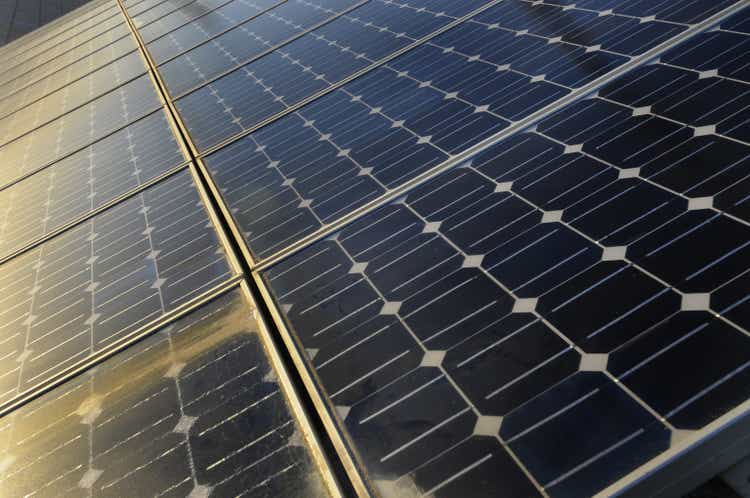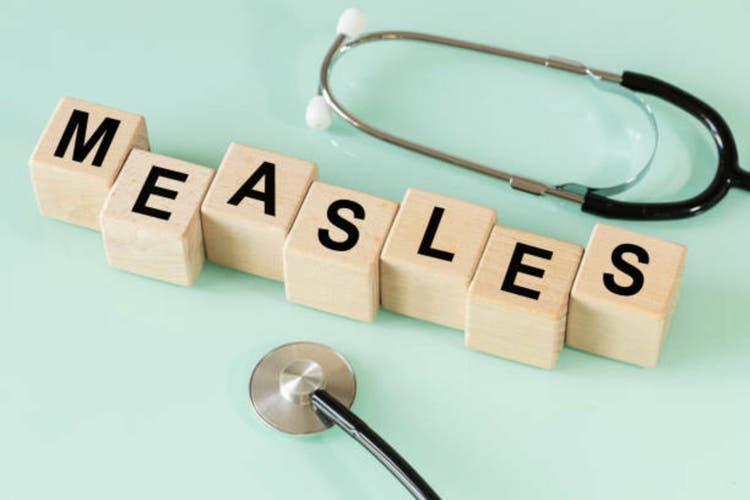The Last Of Us
Credit: HBOWhile there was no way HBO’s adaptation of The Last Of Us would ever be as incredible as the Naughty Dog game upon which it’s based, Season 1 did a pretty remarkable job nonetheless. It was a mostly faithful adaptation that made some understandable changes to fit the new medium, and even added a few storylines that enriched the world and its characters.
One of these was the scientist in Jakarta, but by far the biggest and most profoundly affecting change from the first game was the third episode, which gave Frank and Bill a beautiful, heartbreaking episode all to themselves.
Season 1 wasn’t perfect. There were too few scenes with infected. At times, Ellie’s characterization felt off, though it was close enough not to matter. And there was a sense of the uncanny valley effect at times: Some scenes were shot-for-shot plucked from the game, which made other changes more jarring. A few casting choices also bugged me, but overall it was a solid 8/10 season of TV. Pedro Pascal and Bella Ramsey sold the Joel/Ellie relationship, and while I still think the game is better – one of the great masterpieces of narrative gaming – I was a fan.
Season 2, however, is not working, and not for the reasons I worried about. I have a number of problems with the second game. Some of my issues with it boil down to disagreements with Naughty Dog’s choices. Some are rooted in how it made me feel. I found the game hard to get through simply because it was so bleak and depressing. I hated the inciting event: Joel being killed off so early was hard for me, and losing the relationship between Joel and Ellie so early left a great big gaping wound in the story.
Perhaps my biggest issue with the second game, however, was its very existence. The first game has quite possibly the most profound and powerful ending of any video game I’ve ever played. A part of me still resents that it ever got a sequel.
Somehow, Season 2 of the HBO adaptation is making me like the game more than I ever did in the past. The show’s shortcomings are making the game’s strengths more apparent. Perhaps I just needed some distance from it all before I could really appreciate just how brilliant the game really was, even if I still find it bleak and depressing compared to the first. So what went wrong?
Well, lots of things. We’ll start with perhaps the biggest, most unavoidable one.
Ellie
The Last Of Us
Credit: HBOThis is not a dig at Bella Ramsey, who is doing her level best with what she’s been given. But there are two fundamental problems with Ellie, and a third problem that I’ll get to later in the list.
First, Ramsey is just physically not right for this role. She is too small and she looks fifteen. That’s not her fault. This is not an issue with her appearance and frankly the internet is at its most shameful when it comes to the bullying of Bella Ramsey. It is certainly not an issue with her acting. When she’s been put to the test, I think she’s offered up some genuinely brilliant moments as an actor. But it’s really hard to accept her as the Ellie we know from The Last Of Us Part II when she is just not physically daunting or old enough looking to be the vengeful killer she was in the game – and the vengeful killer she badly needs to be in the show.
Worse, she is being written as a totally different version of Ellie, one who is less serious and less driven and less capable. Fundamentally, I think that the show’s writers and co-showrunner Craig Mazin in particular simply do not understand who Ellie is as a character. It makes me wish that Neil Druckmann (for all the reasonable critiques made about his game) had been the sole creator of the show, with the same vision and understanding he brought with him to the game. To really illustrate this, we must move to Problem #2.
Ellie & Dina’s Fun Teen Roadtrip To Seattle
The Last Of Us
Credit: HBOI stumbled across this video on reddit and I think that while it’s played for laughs, it really drives home the difference between the show’s approach to Ellie and Dina and the game’s approach. This is, at this point in the story, the primary relationship and while a lot of the same beats take place in both the game and the show, the way things are portrayed is radically different. The video (which is very short, you should watch it) compares the exact same scene in the game and the show.
The game’s scene is layered and complex. There’s so much going on that isn’t spoken. They’re discussing the map in both scenes, but in the game there’s so much rich subtext. The dynamic between the two characters is filled with unspoken resentment, guilt, and feeling. The show’s version is filled with jokes and playful banter. One feels like two mature characters on a serious, deadly revenge mission. The other feels like a sitcom.
Ellie is portrayed as a plucky, unserious little girl throughout Season 2, as if she’s barely grown a day past fourteen (and this isn’t helped by Bella’s youthful looks). This leads to some very weird dynamics between these characters. At times, it feels as though Dina is more invested in revenge than Ellie, which is bizarre. Ellie also comes across as both hot-headed and not very bright.
When Dina has to coach her not to use her pistol except as a last resort, I rolled my eyes. Why is Dina mothering her? Ellie is clever and resourceful. Why is she being portrayed as silly and incompetent? There’s another good breakdown on reddit of comments Craig Mazin has made about Ellie that might help us understand these baffling writing choices. The long and short of it is, he views Ellie as a child whereas game Ellie is very much a young woman.
I don’t make the comparison just to complain that the show isn’t like the game, contrary to what a lot of fans say whenever I make these observations. I point it out because one version is objectively better. Ellie as a dumb kid who needs to be pampered by Dina and who cracks jokes about being a dad, rather than having a driving and all-consuming and self-destructive desire for revenge, is an objectively worse version of this character and it makes the show worse.
Mazin also views Ellie as inherently violent, as though she and Joel are one and the same person. But I think a big theme within The Last Of Us Part II is how this really isn’t who Ellie is, and how her changing herself to be more like Joel in an effort to avenge his death also corrupts her. (Apparently Mazin also wanted Ellie to start playing a totally different song than Future Days in the theater, which is just so baffling to me given how important that particular song is to her memory of Joel).
The Pacing
The Last Of Us
Credit: HBOAnother puzzling issue with Season 2 is the pacing. While I really enjoyed a lot of the flashback episode this week, it also had the unintended effect of making the pacing problems even worse. From the get-go the pacing has been all over the place.
On the one hand, the season has dragged its feet, waiting three months between Joel’s death and Ellie and Dina setting out to find Abby. On the other hand, we’ve rushed forward, getting to Seattle and through much of Ellie’s Seattle storyline in a flash.
There have been some really great moments along the way. The subway scene with all the infected. The smart clickers that almost killed Ellie and Dina (thank goodness Jesse showed up just in the nick of time!). These good bits, however, have been stranded amidst a lot of odd slow points. By the time Ellie finds Nora and kills her, it almost doesn’t even make sense. She’s spent so much of her journey as this happy-go-lucky kid on a roadtrip with her girlfriend, you almost think she doesn’t really care anymore about seeking revenge. Then she just unleashes cruelty. It feels very out-of-left-field.
So much of this is pacing, and so many of these pacing issues lead us to our next, very related problem.
There’s No Sense Of Urgency
The Last Of Us
Credit: HBOThe consequence of Ellie and Dina’s portrayal as kids on a fun roadtrip and the pacing problems is the death of urgency this season. There is never a sense that what they’re doing is all that important to Ellie. She stumbles on Nora almost by mistake. When Dina reveals she’s pregnant, instead of reacting like this is a huge problem and hindrance, Ellie is all happy (and they’re both just horny, I guess).
The three month wait also made the season feel like everyone was just fine waiting around. Tommy doesn’t rush off to find his brother’s killers. He only leaves after Ellie. The story is punctuated by so many sidebars and flashbacks and other stories (including some great bits with Isaac and other stuff I’m glad we have) that it has never really coalesced into the revenge plot that it really needs to be at this point.
This is sort of what I meant above when I said this season isn’t working and not because of the reasons I thought it wouldn’t work. I was worried that the season would be overly bleak. I was worried that killing off Joel and then following that with such a brutal revenge tale would turn off viewers. Instead, the main problem with the season is that it all feels too light and breezy. There’s very little tension where it counts, in particular between Ellie and Dina as the darkness of their journey begins to fracture their relationship. Ellie just doesn’t even seem to really care at this point about her stated mission. It’s very weird.
The Storytelling Is Off
The Last Of Us
Credit: HBOFinally, we come to the storytelling itself. In particular, the choices to make some pretty huge changes from the game. One of these is the three month gap between Joel’s brutal murder and Ellie’s decision to go after Abby. The other big ones are:
Revealing Abby’s motives from the get-go. This was a mistake. This was supposed to be a mystery until much later. Giving the audience her motivations so early on, and wrapped up in a villain monologue, is tantamount to spoon-feeding viewers. It speaks to a general sense that the show’s creators don’t trust audiences to be patient or thoughtful enough to wait for answers.
Moving the porch scene between Joel and Ellie up to the penultimate episode of Season 2 is perhaps even more egregious. This is the final scene of the game. It’s an important scene because it fundamentally recontextualizes everything we’ve seen up to that point. We follow Ellie on her murderous revenge quest, thinking that her last moments with Joel were bitter, that so much of her rage and desire for revenge is also about her guilt and ending things with him on such a terrible note. Then, in the end, we learn the truth. Their final moment was actually one of reconciliation and love.
It’s a deeply profound way to end the game. It left me quite moved (despite all my criticism of the game, it still deeply affected me). I am still just baffled as to why they would move this to Episode 6, and then change it in a bunch of strange ways that make it both less impactful and more about Joel than about Ellie. I’m a little lost as to how they’ll even end the show at this point.
I’m also not sure that combining all the flashbacks into one episode was the right call, but since it was handled (mostly) pretty well, I won’t belabor the point.
Other changes I’ve enjoyed. The battle of Jackson was epic. Even some of the comic relief has been nice – there’s just been too much of it. But the reality remains that the best parts of the season are the ones that hew closest to the source material. The museum trip (even without dinosaur hats) and the subway scene. Ellie playing her guitar and singing for Dina. All these little moments that capture the feel and mood of the game so well. And then we shift tone, shift focus, shift toward some other version that is just not as compelling or urgent or sincere.
It’s not bad TV. This is no Night Country or Rings Of Power. A great deal is still done very well. The production is amazing. At the end of the day, it just isn’t the same story, and Ellie in particular just isn’t the same character. More’s the pity.
.png)










 English (US) ·
English (US) ·